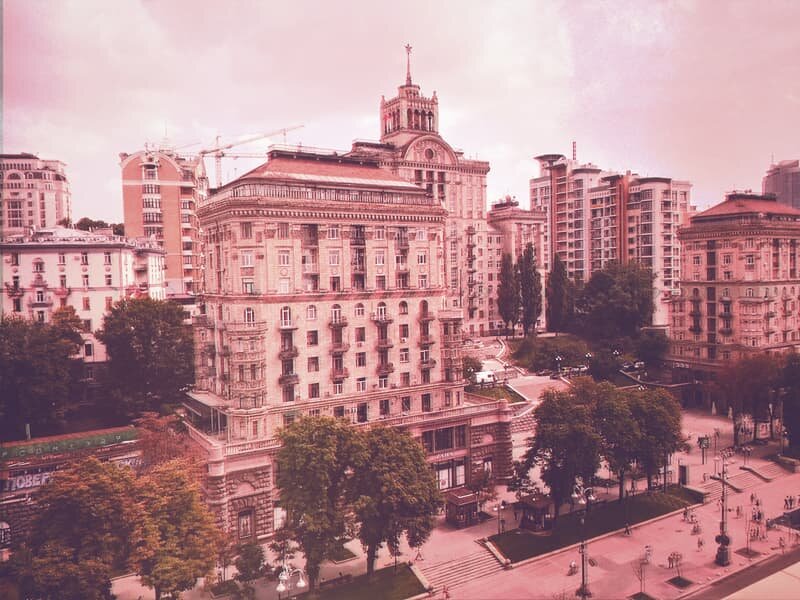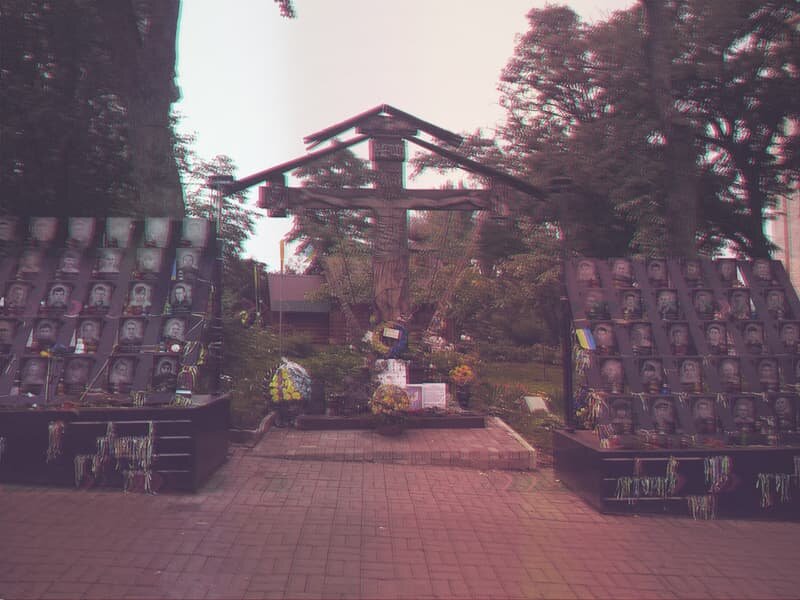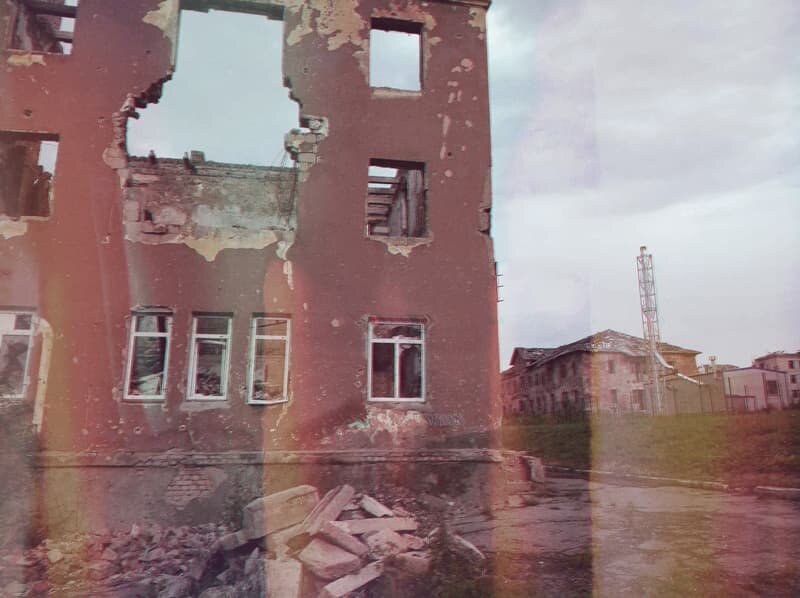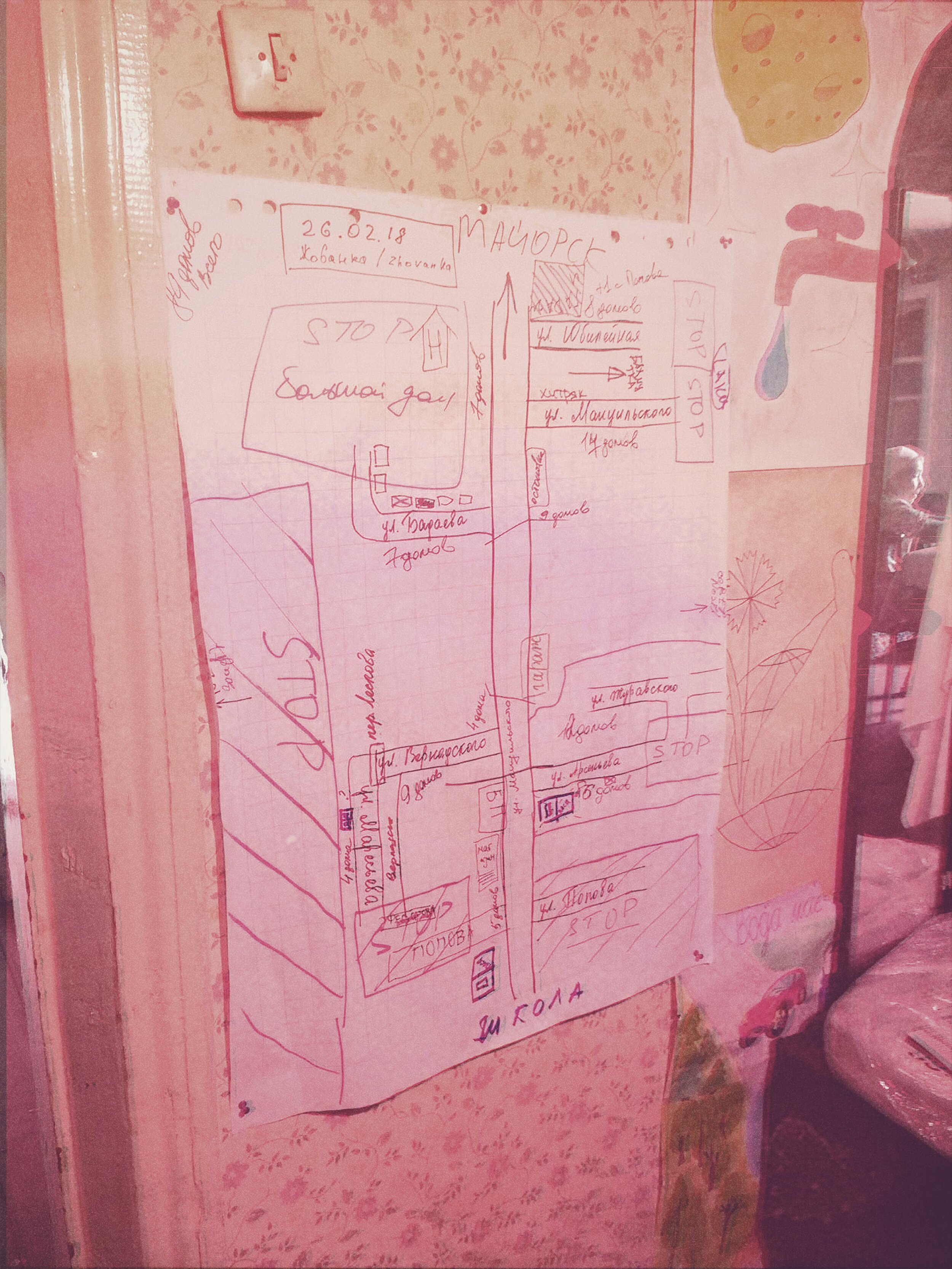Are You Prepared for the End Times?
Words by Josh Skaggs
I was an ironic end-times enthusiast until I met a Ukrainian pastor who had
gone through some real apocalyptic shit.
At a local Perkins during the Obama presidency, my mom accidentally found herself at a women’s small group for end-times preparedness. (She’d been invited to check out a women’s small group—a description that left out some of the juicier details.)
The women were of various ages and belonged to different churches, but they shared a common fear: President Barack Obama was going to usher in a time of senseless violence and bloodshed that would likely trigger the end times. And they were going to be prepared when that happened.
Over pancakes and eggs Benedict, the women began to take turns responding to a prompt—How are you preparing for the end times? One woman kept a (loaded?) gun on her nightstand and spent her nights rehearsing a tactical maneuver by which she rolled off her bed while aiming her gun at the bedroom door. Another woman had enrolled in a special ops training course in Kansas.
When my mom’s turn came to share, she informed the group that she was learning to garden and bake bread—an answer that did little to impress these Rambos-in-training. My mom, it would seem, was not prepared for the end times.
But then, how many of us are?
“I’ve let my mind wander through some emergency scenarios, the same way I’ve pondered how to escape quicksand (lay back and float until you can grab a branch) or kill zombies (headshot, idiots).”
Having survived Y2K and come of age during the peak of the “Left Behind” series’ popularity, I am familiar with end-times musings. With these fictions and the very real advent of global warming and nuclear proliferation, our generation has never been far from the apocalypse. So yeah, I’ve thought about the end times. I’ve let my mind wander through some emergency scenarios, the same way I’ve pondered how to escape quicksand (lay back and float until you can grab a branch) or kill zombies (headshot, idiots).
I feel a humor reflex in me that safeguards against grappling seriously with the subject. Preppers (and their cousins, the flat Earthers) are easy to make light of, with their slowly expiring stashes of Campbell’s soup and their hard-edged insistence on cockamamie conspiracies. Any humor writer knows that death is the stuff of good comedy; so, it seems, is the death of the world.
And yet, the Bible is not so glib. Jesus commands his disciples to “be ready” for his return. Peter counsels us to “wait for and hasten the coming of the day of the Lord.” Paul warns us that there will be “terrible times in the last days.” I could go on.
Although the Bible gives some pretty strong counsel to prepare ourselves for the end times, I’ve largely neglected these warnings. For a time, I was involved in a prayer community that painstakingly outlined their end-times theology, warning against the great deception coming for those who weren’t ready. They urged fasting and prayer as the two primary tools for end-times preparedness.
I appreciated their seriousness, even fasted from time to time. But as I looked around at these pale, scrawny intercessors, I had a hard time imagining them surviving a camping trip, let alone the apocalypse. Was prayer really all that was needed? When we think of the end times, is a person ever really prepared?
These considerations were hypothetical until I visited a place where the apocalypse seems a lot more imminent: eastern Ukraine.
Slavyansk, Ukraine
If you’re unfamiliar with Ukrainian history, here’s a quick crash course: Since the collapse of the Soviet Union in 1992, Ukraine has continued to fight for its independence from overt and covert Russian control. After Ukrainians led a successful revolution in 2014 to oust their pro-Russian president from office, Russia retaliated by invading Crimea and much of eastern Ukraine. That territory is still occupied to this day.
So as I drove into eastern Ukraine in a van riddled with bullet holes, rocking back and forth on a bench seat fastened to the floor with a bungee cord, the end times were not far from my mind.
My host was Peter Dudnik, a Ukrainian pastor who made up for his grim demeanor by feeding me one of the best breakfasts of my life. He took me on a tour of Slavyansk, a city of 100,000 that was taken over by militants for several months in 2014. Because Peter’s church was positioned at the entrance to the city, the militants claimed it as a strategic base, storing weapons in the basement and posting snipers on the roof.
As Slavyansk shut down under siege, roadblocks were set up and curfew instituted. The Ukrainian government lost access to the city, but as a free agent, Peter was able to fly under the radar. He evacuated his wife and children to a safe location outside the city, then returned and began to help others escape. He established a few meeting places in town, one at the local pool and another in a grocery store parking lot. Every day, he and his team shuttled dozens of people out of town by back roads.
For a time, things got worse. Peter showed me a YouTube video of two tanks shooting heavy artillery from his church lawn. He also took me to the grave of four Christians who had been taken from a church service on the day of Pentecost, interrogated, tortured, and executed. It was a scene straight from the imaginations of Tim LaHaye and Jerry B. Jenkins.
“He also took me to the grave of four Christians who had been taken from a church service on the day of Pentecost, interrogated, tortured, and executed.”
Peter drove me around town and spoke in Ukrainian while a friend translated. “When I drive my car and my tires catch the tank pattern on the pavement, and that noise—all of a sudden I am overcome with memories of evacuating people and going without knowing if we would make it. Sometimes different memories come, and tears start running down my face.”
Peter told me the parable of the 10 virgins from Matthew 25. Ten virgins are waiting for the bridegroom, but when he arrives, only half of them have oil in their lamps. Peter believes that the oil signifies our walks with God.
He says of his church before the siege, “We had already been serving the poor, serving the needy. We had a lot of experience listening to God, hearing his voice, relying on his guidance; so when this happened, we were prepared for this experience.”
He told me that, if his church had not practiced walking with God, they would have responded like everyone else in the city—with fear. Instead, he and his team helped evacuate more than 10,000 people.
“In times of crisis, everything is happening so dynamically, but your spiritual senses are sharpened. In those times, you need guidance from God so that you will find yourself experiencing God telling you what you need to do, and it goes against all logic. What your eyes will see as objective reality is one thing, but your internal witness will know a different reality. If you learn to hear God’s voice before that, you will trust his voice in times of trouble also.”
He told me stories of miraculous intervention, of God directing him through an intricate series of decisions that ultimately saved lives. He introduced me to a man who had been miraculously let out of jail like Peter in the book of Acts. When we visited his church, he showed me a display of artillery and armor that the militants had left behind. “A museum for tourists,” he said, grinning at me, and I suddenly had a vision of myself from his perspective: a wide-eyed American touring his post-apocalyptic stomping grounds. I felt small.
Compared to Peter, I am small. I’ve never lived in a war zone. No one has ever looked to me for rescue. And while I have no desire to start running drills with a gun on my nightstand, I want to be capable of standing strong when the shit hits the fan. I think of the advice Peter gave me:
“When times are good, you gain experience in your prayer life, in hearing God’s voice, and reacting to people’s pain. When a time of calamity comes, it is a big test of your faith. If you had the experience of listening to God before calamity came…you will see it as a challenge, that you must act.”
Notice that word “when”. Having lived his whole life in a contested region, Peter doesn’t think hypothetically about calamity. In that way, he is similar to many Christians throughout history, especially those in the early Church. Christians in every generation have believed they were living in the last days, and I don’t think they were wrong. Every generation since Christ has experienced war and rumors of war, the “beginnings of birth pains, with more to come.”
To ready ourselves for the end times is not paranoia. Our readiness is a confession of faith in Jesus’ promise that he will return. It is the way we manifest our identity as sojourners and pilgrims in this world, awaiting a Kingdom that will not be shaken.
What stands out to me the most about Peter Dudnik is that his end-times preparedness extended to his entire community. The small group my mom visited and the prayer community I joined both had a limited sphere of what it looked like to survive the end times—one that was primarily defensive and self-focused. Peter looked out for his entire city and in doing so created an opportunity for people to encounter Jesus.
“In a time of calamity,” Peter told me, “the question is not only ‘How do you survive and sustain yourself?’ but ‘How do you exhibit God’s glory?’”
Print isn’t dead.
If you enjoyed this article, you’d probably love more like it in the And Sons print issue. If you don’t have one of these on your coffee table right now, you should probably go explore our back issue catalog.









